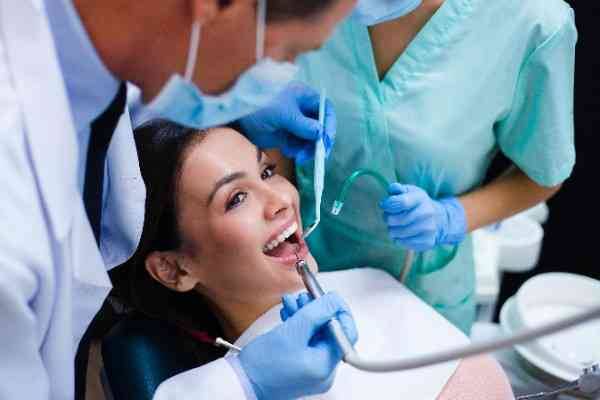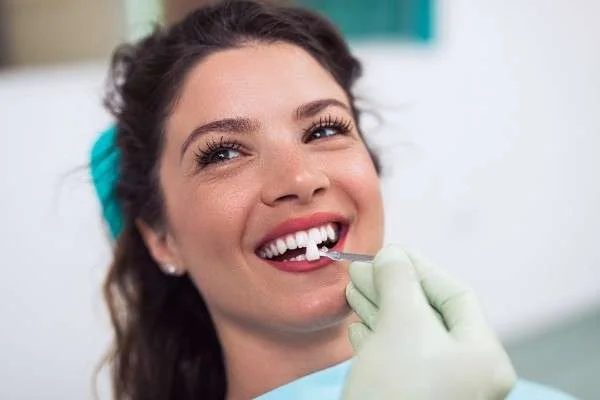Dental emergencies often strike when least expected — during a meal, while playing sports, or even at night. A toothache or sudden injury may seem minor at first, but hesitation can make the difference between saving and losing a tooth. Understanding why prompt emergency care is vital can help preserve not only your smile but your overall oral health.
In this blog, we’ll explore why acting quickly matters, what situations count as dental emergencies, how emergency care works, and what to do before you reach a dentist.
The Importance of Immediate Action
When a dental emergency occurs, time becomes your most valuable resource. Teeth are living tissues supported by nerves, blood vessels, and ligaments. If a tooth is damaged or dislodged, the surrounding structures can begin to deteriorate within minutes or hours. Immediate care helps preserve these tissues and increases the likelihood of saving the tooth.
For instance, if a tooth is knocked out, placing it back into its socket within 30 minutes dramatically improves the chances of survival. Similarly, severe toothache, swelling, or infection should never be ignored, as they can rapidly worsen and lead to complications like abscess formation or bone loss.
Common Dental Emergencies That Need Urgent Care
Knowing what qualifies as a dental emergency is essential so you can act quickly and confidently. Here are some of the most common dental emergencies that require immediate attention:
1. Knocked-Out Tooth (Avulsed Tooth)
A knocked-out tooth is one of the most time-sensitive emergencies. If handled properly, the tooth can often be reimplanted. Keep the tooth moist — ideally in milk or saline — and avoid touching the root. Seek a dentist immediately.
2. Broken or Cracked Tooth
A chipped or fractured tooth may not always hurt initially, but if the damage reaches the pulp, it can cause severe pain and infection. The sooner you get it repaired, the better the outcome for the tooth’s long-term health.
3. Severe Toothache
Tooth pain is often a signal that something is seriously wrong — such as decay, infection, or exposed nerves. Persistent or throbbing pain should be assessed without delay to prevent the spread of infection.
4. Dental Abscess
An abscess is a pocket of pus caused by a bacterial infection. It can lead to swelling, fever, and severe discomfort. Left untreated, it may spread to surrounding tissues or even the bloodstream, becoming a serious health risk.

How Emergency Dental Care Works
Emergency dental care is designed to provide immediate relief and prevent further complications. When you contact an emergency dentist in Bracknell, you’ll typically be offered a same-day appointment, often within hours.
The process usually involves:
- Assessment: The dentist will first examine your mouth and may take X-rays to determine the extent of the issue.
- Pain Management: Local anaesthetic or medication may be provided to control pain and reduce inflammation.
- Stabilisation: Depending on the condition, the dentist may stabilise a loose tooth, drain an abscess, or place a temporary restoration.
- Treatment Planning: Once immediate care is provided, you’ll receive a treatment plan for follow-up procedures, such as root canal therapy or permanent restoration.
The goal of emergency dentistry is to save the natural tooth whenever possible. In some cases, this may mean performing quick interventions like splinting or reattachment. In others, it may involve removing infection before it spreads. Either way, acting promptly ensures the most conservative and effective approach.
The Connection Between Oral Hygiene and Dental Emergencies
Good oral hygiene plays a critical role in reducing the likelihood of dental emergencies. Regular brushing, flossing, and professional cleanings remove plaque and bacteria that can cause decay and gum disease.
However, many people overlook preventive care until they face pain or damage. Visiting a hygienist in Bracknell regularly can make a significant difference. Hygienists not only clean your teeth but also check for early signs of trouble, such as weak enamel, gum inflammation, or minor decay. By addressing these early issues, you can avoid more severe problems that may later require emergency intervention.
Prevention, therefore, is the best defence. Maintaining good oral hygiene habits and scheduling regular check-ups greatly reduces the chances of facing a sudden dental crisis.
What to Do Before You Reach the Dentist
In an emergency, knowing what to do before you see the dentist can make a huge difference. Here are some steps to follow depending on the situation:
- For a knocked-out tooth: Handle it by the crown (not the root), rinse gently with water if dirty, and try to reinsert it in the socket. If that’s not possible, keep it moist in milk or saliva.
- For a broken tooth: Rinse your mouth with warm water and use a cold compress to reduce swelling. Keep any broken fragments.
- For a toothache: Rinse with warm saltwater and take pain relief medication if needed, but never apply aspirin directly to the gums.
These actions can help stabilise your condition and increase the chance of saving your tooth until professional care is received.
Long-Term Benefits of Acting Quickly
Prompt emergency dental care doesn’t just save your tooth; it also protects your overall oral and physical health. Treating infections or injuries early helps you avoid:
- Extensive dental procedures: Early treatment can prevent the need for root canals, implants, or extractions.
- Chronic pain: Immediate care relieves discomfort and prevents long-term sensitivity.
- Facial and jawbone complications: Preserving natural teeth helps maintain bone density and facial structure.
- Financial strain: Acting early can save significant costs compared to delayed or complex treatments.
Furthermore, prompt attention restores your confidence and comfort — allowing you to speak, eat, and smile without pain or worry.
Preventive Mindset: Building Habits That Protect Your Smile
Beyond emergency care, developing a preventive mindset ensures you’re less likely to encounter such situations in the first place. Here’s how to build lasting habits for strong, healthy teeth:
- Regular Check-ups: Schedule dental exams every six months to detect early signs of damage or decay.
- Professional Cleaning: Routine hygiene appointments keep your teeth and gums healthy.
- Protective Gear: If you play contact sports, use a mouthguard to prevent dental injuries.
- Healthy Diet: Reduce sugary and acidic foods that weaken enamel and increase cavity risk.
- Avoid Bad Habits: Don’t use your teeth to open bottles or bite hard objects — this can cause cracks or chips.
Being proactive about your oral health is far more effective and less stressful than dealing with an unexpected emergency.

Conclusion
Dental emergencies are never convenient, but acting quickly can make the crucial difference between saving and losing a tooth. Whether it’s a sudden injury, severe pain, or infection, prompt professional care helps protect your oral health, relieve discomfort, and restore normal function.
By combining emergency preparedness with preventive care — including regular visits to your dentist and hygienist — you can ensure a healthy, confident smile for years to come.
For trusted, immediate dental assistance and preventive care guidance, EDA Group stands ready to support you whenever you need it most.




